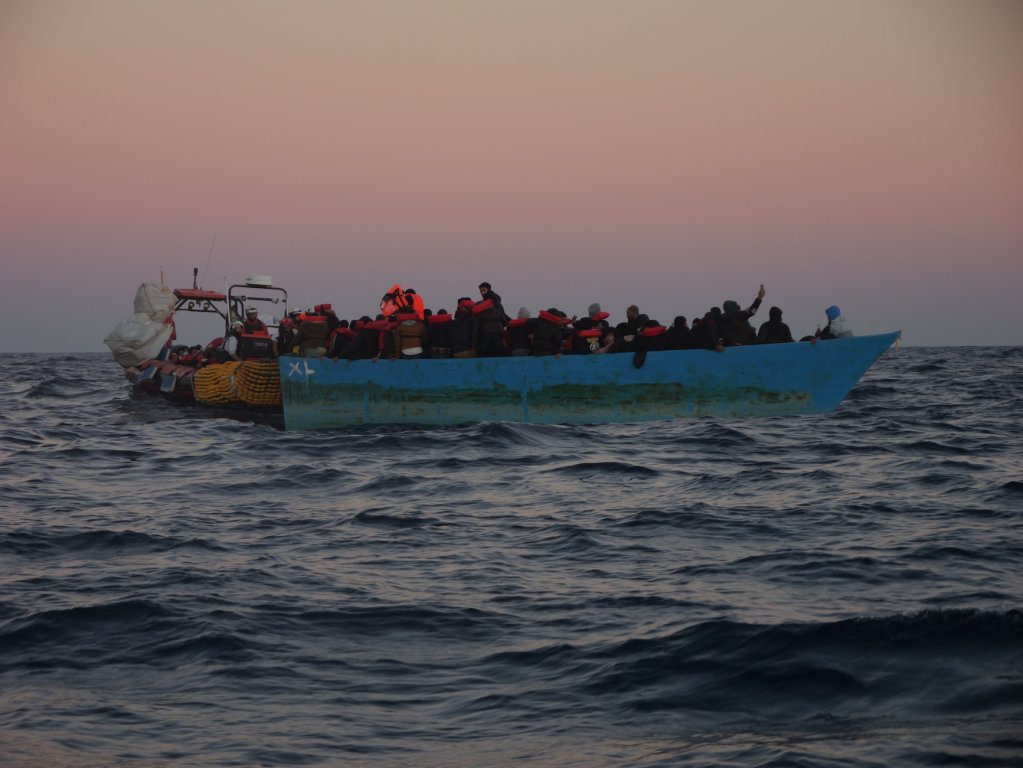Deceived by human smugglers, three young men from Gujarat recount their harrowing journey from Pakistan through Libya and across the Central Mediterranean. They faced death threats, inhumane conditions, multiple attempts to cross the sea in unstable boats, and repeated extortion. Allegations of corruption and complicity involve Libyan officials, UN workers, and the Pakistani embassy in Tripoli.
Mohammed Abubakar, a 24-year-old from Gujarat, Pakistan, endured nine tormenting months in Libya before being rescued by an NGO ship along with 133 others in the Central Mediterranean Sea.
"I tried to cross the Mediterranean every single day," Mohammed told InfoMigrants.
Mohammed met Salman* and Zain* (names changed upon request), also in their early twenties and from Gujarat, while in Libya. InfoMigrants met the three young men in February aboard the Geo Barents, a search and rescue vessel operated by Doctors Without Borders (MSF). As luck would have it, it marked their final attempt at the deadly sea crossing.
Mohammed nervously mumbled he could swim 'a bit,' while the other two bowed their heads, fiddled with their hands and fingers, and admitted they couldn't swim at all.
Mohammed said he fled Pakistan due to fears of terrorism, violence, and potential torture, as well as the limited economic opportunities in the country. "That's why I moved to Libya and chose this way to get to Europe. We can't get a visa through a legal process."
The three men had flown from Karachi to Dubai and then to Egypt before landing in Benghazi, Libya — all with the help of people involved in the migrant smuggling economy as part of a "paid package." Smugglers helped organize their paperwork, flights and hideouts -- and confiscated their passports.
Pakistani smugglers promised Zain, Salman and Mohammed a "very easy," quick and straightforward journey. "In Libya, you will live like you are at home. Between seven and 10 days you will be in Italy," a smuggler vowed. But one week turned into a months-long nightmare for all three.
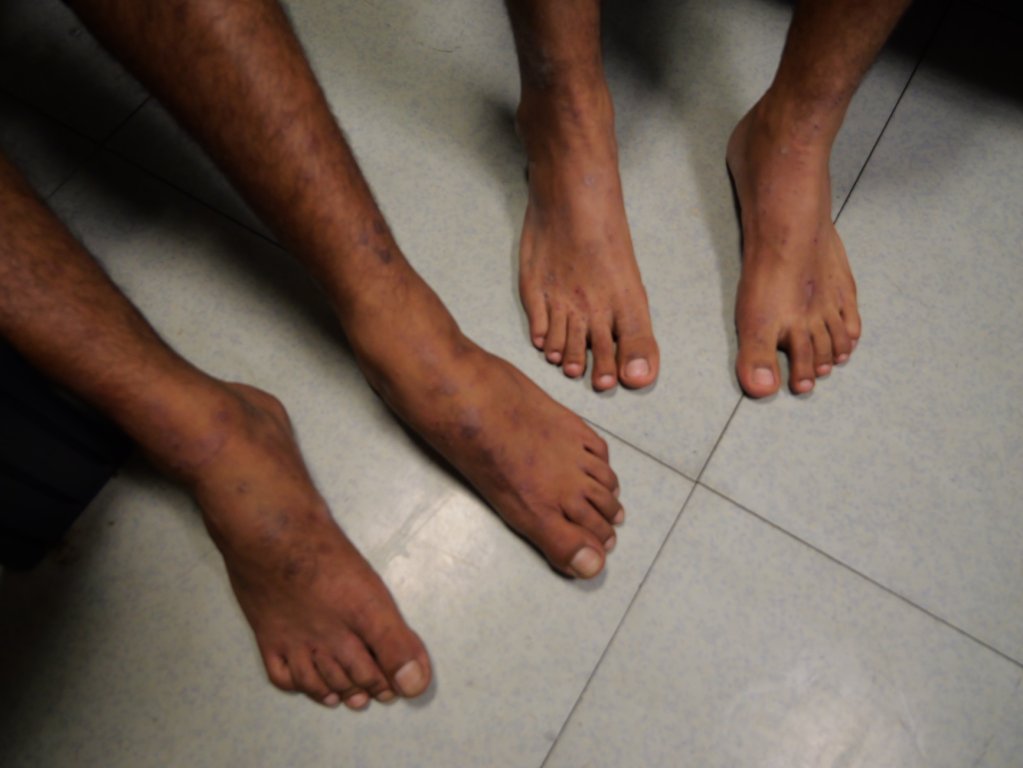
Death threats, blackmail and financial extortion plague migrants in Libya
Mohammed recounted numerous hardships they faced in Libya, including repeated beatings and inhumane conditions while in detention.
"We are humans, but they will beat us and do anything to us for money," Mohammed recalled, "they" being the 'mafia.' "Give me the money, they say, otherwise I will kill you. I will make a video and send it to Pakistan…maybe they will cut you with a knife, you will be tortured."
The three Gujaratis referred to the 'mafia' when describing corrupt agents in Libya, including human smugglers, traffickers, criminal gangs, and corrupt members of the Libyan coast guard, military, police, migrant detention center workers, and militia.
"The mafia will kill a person…the Libyan police, militia and government are also taking money from you. There is so much corruption in Libya… the Pakistanis working in Libya for money…the Pakistani embassy in Libya…the Libyan United Nations workers…" Mohammed said while Salman and Zain nodded in agreement.
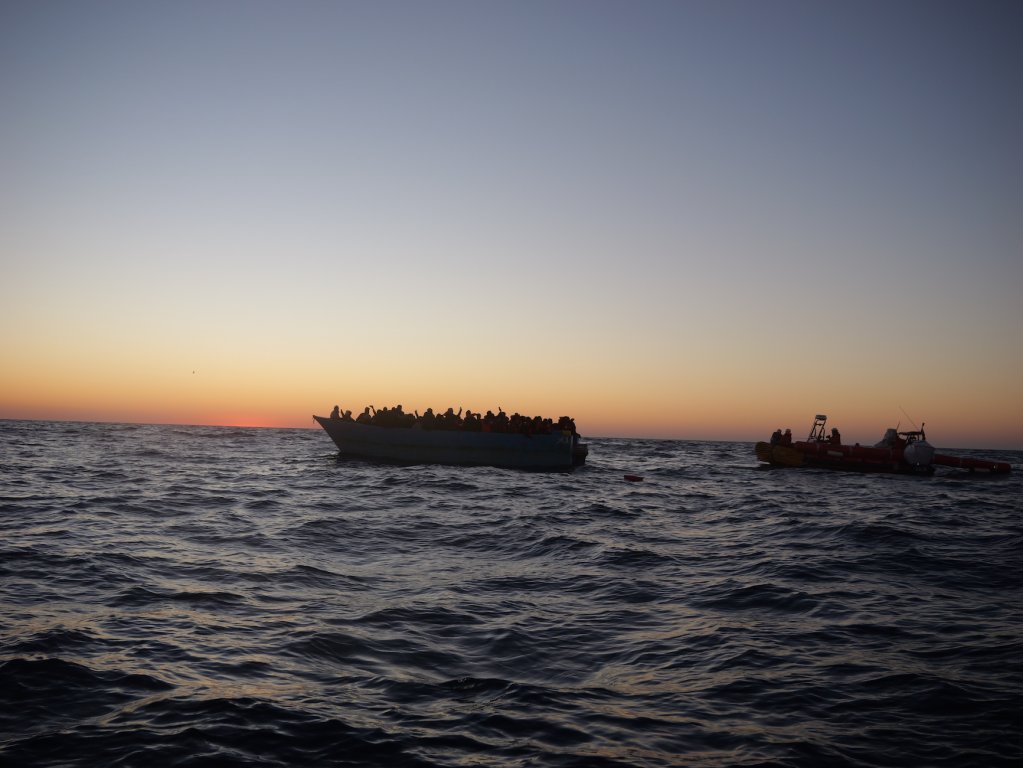
Like many other Pakistanis, the three men said they came to Libya with extra financial support from bank loans. Their relatives also took out loans in Pakistan to assist them.
"We are very poor people… If you get caught by the mafia or police in Libya, would you have enough money to give them? Would you survive?"
Inhumane conditions in smuggler hideouts expose harsh realities
On one occasion, smugglers had arranged a sea crossing for Mohammed from the northeastern city of Tobruk, close to the border with Egypt.
"But the Pakistani person who brought me here to Libya didn't give the money to the Libyans, he kept it himself, so the Libyans wouldn't let us depart," Mohammed recalled. "They beat us, called our parents and threatened our family for 30 days, telling our family to give them money." Mohammed said he was then put in a washroom measuring about 10ft long and 10 ft wide for four days.
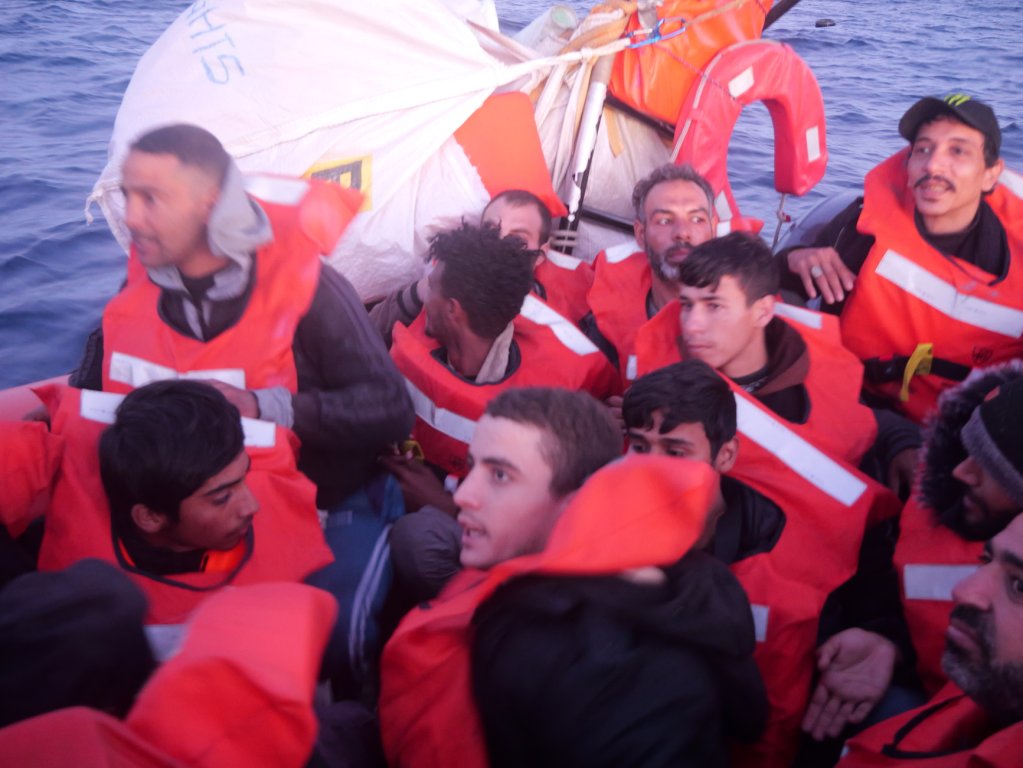
"It was very cold, and all they (smugglers) gave us was a bit of rice. We barely survived."
While waiting for the next sea crossing attempt, Mohammed was moved to a "type of garage" with 385 other migrants.
"The Libyan person [smuggler] who was planning the trip for us, they had some contacts in the military and the police. They would call them, and they would give a sign if everything was ok in the sea and then you could cross it," Mohammed explained. He described the room they were forced to stay in until then as "crowded and dirty."
"We drank water from the washroom…we only got a handful of rice in 48 hours." But the local authorities found out irregular migrants were staying at their location. "They caught us and put me in prison," Mohammed said. He did not specify the authoritative body, but mentioned that various military groups handed him over to other military groups in different cities including Tobruk and Benghazi. He also mentioned the Libyan police.
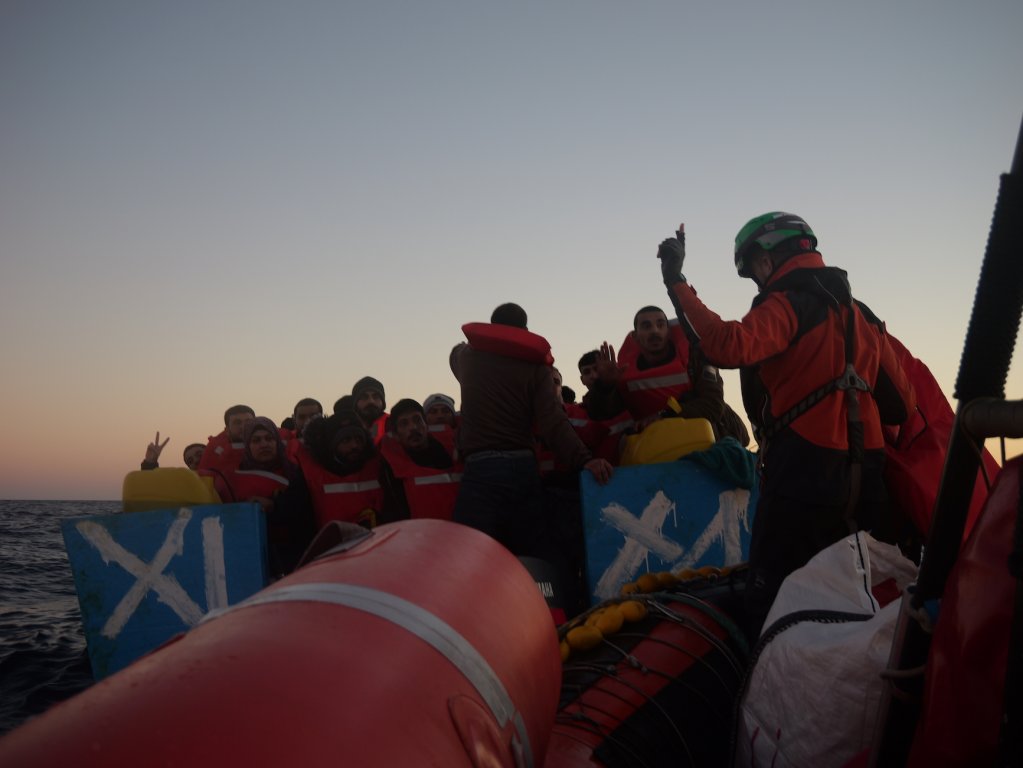
Beatings, deprivation and extortion in Libyan detention centers
During detention in Libya, all three men said they were subjected to repeated beatings, showing their scars across their bodies.
"If we are speaking a little bit loud, we got a beating," Mohammed explained.
Zain said he spent 100 days in detainment in Libya while Salman said he spent two months in detainment, including time at the Ain Zara detention center in southern Tripoli.
"When you are put in prison, they ask for 3,000 US dollars to release you," Salman said.
Mohammed spent two days at the Ganfuda Benghazi, a detention facility managed by the governmental Directorate for Combatting Illegal Migration (DCIM).
"In prison, they give little food, dirty water, after some days you get ill…there's no medicine. If you don't get released from prison, maybe you die after one or two months," Mohammed said. "In Benghazi prisons you must pay about 1,000 to 1,500 dollars to get out, in Tripoli it's more," he added. "Our friends are still in prison in Tripoli in very bad condition. We want the United Nations or some other organization to take action and release them."
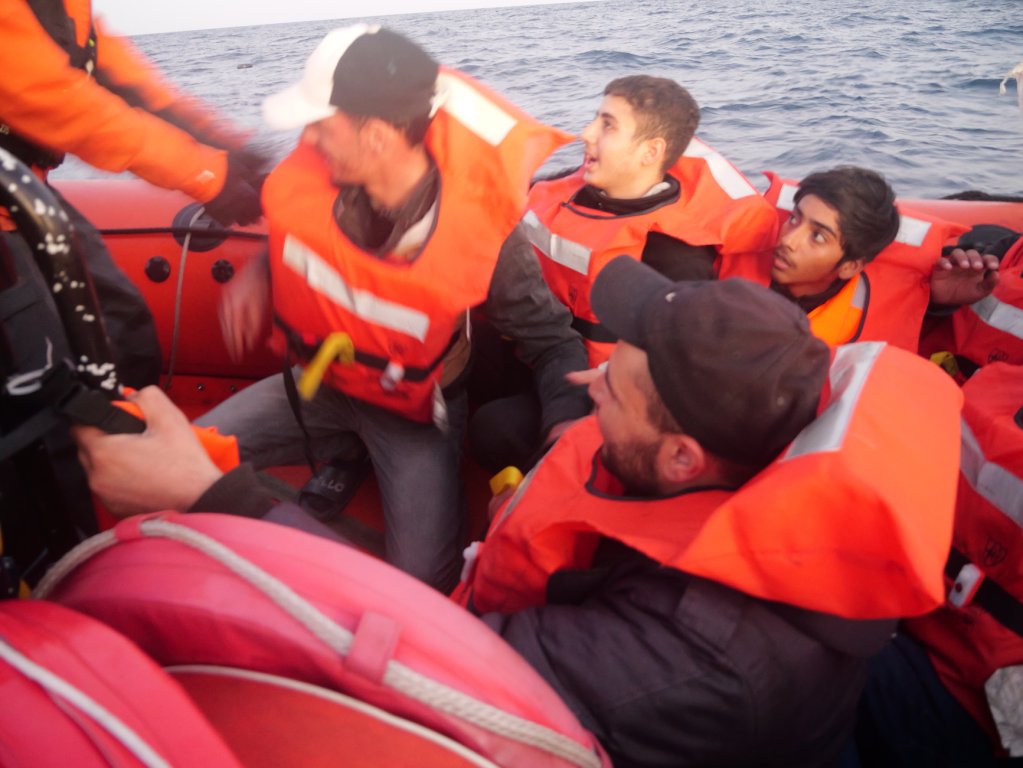
When asked how they managed to make such payments after being stripped of all their money in detention, Mohammed said he turned to his parents in Pakistan.
"If a person has a phone, he just hides it from the Libyan police in jail. We tell our parents that we are in prison and they are asking for money. So our parents pay a person [in the smuggling business] in Pakistan, or their families, and that person can arrange money for the smuggler in Libya, and then they will release you from prison… It's a long process."
Allegations of abuse of power and corruption within Libyan police and coast guard
When authorities catch undocumented migrants, they take all their belongings and money, Zain, Salman and Mohammed explained.
"When police caught us, they took our documents, like my passport they would sell to the mafia for 1,000 LYD (190 euros). This way they can earn money," Mohammed said, adding: "The Libyan person whom we give the money to help us cross the sea, he gives money to the police to arrange a referral for us and pay off mafia."
"Another way for the police to earn money, is that the mafia – the smugglers who arrange the [Mediterranean crossing] trip for us, they do some set ups with the Libyan military-navy [coastguard] and give them money so they don't catch us [interception]. Even some troops came in international waters with the Libyan navy…" Mohammed said, but did not elaborate further.
He then shares a story of a Pakistani man who made the sea crossing to Italy with the help of smugglers from the northwestern town of Zuwara, not far from the border with Tunisia. After drifting at sea for two hours, the Libyan coast guard spotted the boat, fired at a group of migrants, and then stopped the boat, according to Mohammed. "The smuggler, a Libyan person, then gave them [Libyan coastguard] some money," he said.
According to Mohammed, bribery between smugglers, migrants, and the Libyan coast guard can take place directly at sea, or a coast guard member may phone a smuggler on land to demand payment in exchange for not intercepting the migrant boat.
"One officer may be connected with the smugglers, when he's on the duty, he just calls him. Everything is planned. But if another officer is there, maybe they would catch you," Mohammed said.
Corruption allegations involving Pakistani Embassy and UN personnel
Salman, Zain and Mohammed maintain that corruption permeates multiple levels of authority and power in Libya – from detention center guards to government officials. They also claim that corruption extends to locally-employed staff of the United Nations in Libya and the Pakistani embassy in Tripoli.
"UN Libyans are corrupt…Pakistan embassy people are also corrupt," Mohammed declared, referring to locally recruited Libyan personnel and their alleged involvement in financial misconduct when dealing with irregular migration.
"Libyans working at the UN give money to the Pakistani embassy to deport people who are in detainment. They are so corrupt," said Zain in frustration, though he did not elaborate.
Zain, Salman, and Mohammed could not specify which UN agency they were referring to. The International Organization for Migration (IOM) and the UN Refugee Agency (UNHCR) are the most active in dealing with migrants on the ground in Libya. InfoMigrants reached out to both organizations, but spokespersons from each said they were unaware of any such allegations against their Libyan staff when questioned on the matter.
Salman said the Pakistani embassy "took 1,500 euros per person from the UN to deport them back to Pakistan…but we don't know if they really deport them."
According to Mohammed, "The Pakistani embassy tells the Libyan person working for the UN that the embassy has deported a certain percentage of people, and the Libyan UN workers report that to the UN." Mohammed suggested that the figures, however, don't reflect reality.
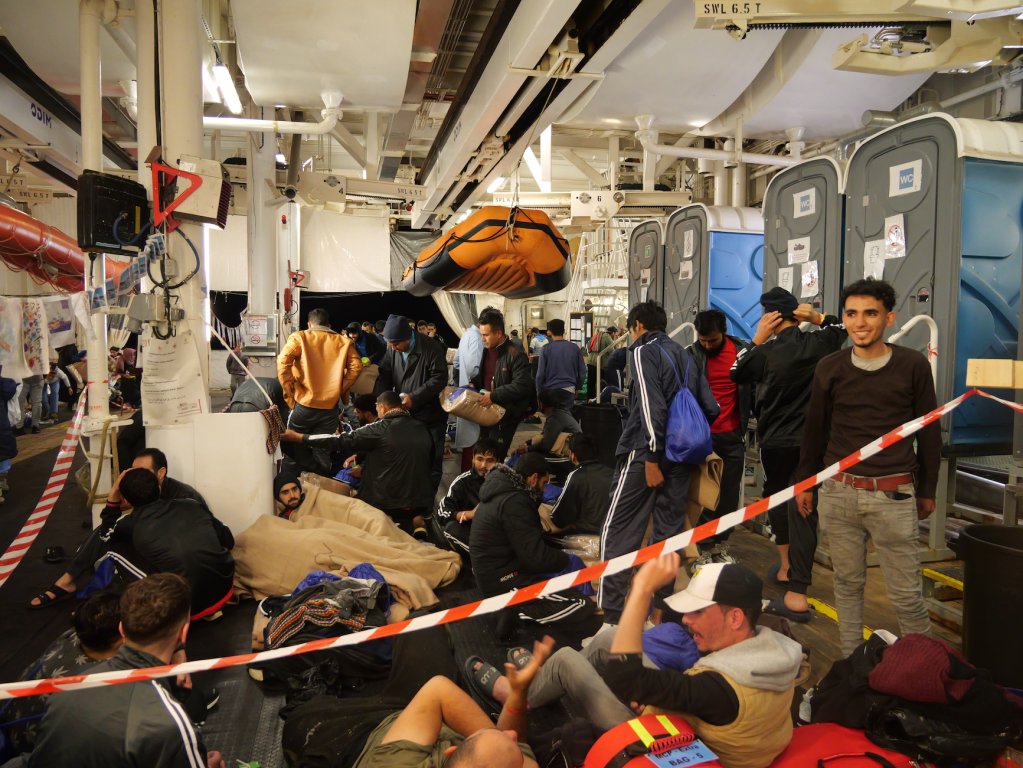
"The Pakistani embassy is in contact with Pakistani smugglers in Libya and Pakistan. Libyan UN workers and the Pakistani embassy people are corrupt," Mohammed insisted, without providing further details.
When asked to specify individuals within the Pakistani embassy they believed to be corrupt, and whether they think the ambassador is aware of any corruption, Mohammed answered: "Everyone knows that the ambassador knows every situation, everything that is happening in here in Libya, not just the lower level employees. But I think that the ambassador will also know, if Pakistani civilians know about it it's impossible he doesn't."
Under its Voluntary Humanitarian Return (VHR) program, the IOM organizes free travel for migrants in Libya wishing to return home, coordinating with Libyan and return countries' authorities. According to its website, the IOM also offers consular support via field visits or virtual sessions with embassy representatives, assisting stranded migrants in connecting with their embassies.
Read AlsoReturns back in focus as part of EU migration strategy
How did Pakistan, UN agencies and Frontex respond?
The Pakistani embassy in Tripoli and the Pakistani foreign ministry did not respond to InfoMigrants' request for comment on the allegations of corruption.
The EU border control agency, Frontex, responded that it could not provide a comment when InfoMigrants asked about the financial extortion of migrants, conditions in Libyan detention centers, or people smuggling on the Mediterranean route.
The United Nations Support Mission in Libya (UNSMIL) also did not respond to InfoMigrants when asked to comment on migrant testimonies detailing abuse, violence, deprivation, and extortion in Libyan detention facilities, as well as allegations of collusion between locally-employed UN workers and smugglers exploiting migrants seeking to reach Europe.
Asked the same questions, an international organization worker who requested anonymity responded: "No, not that I can even imagine, at least I'm talking for my agency. We don't have any involvement with the non-official detention."
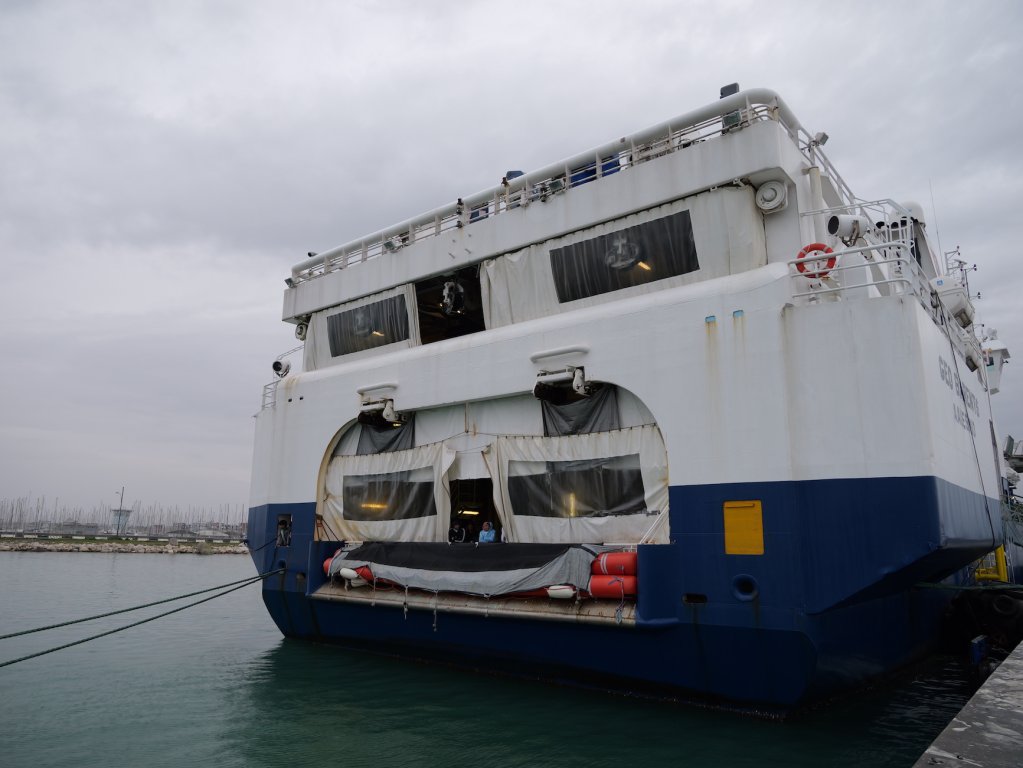
A UNHCR spokesperson told InfoMigrants that the UN refugee agency "is not involved in any evacuation programme to Pakistan or with the Embassy of Pakistan and we are not aware of any of the allegations."
An IOM spokesperson also said no when asked if he had heard of the allegations.
According to the UNHCR spokesperson, the UN refugee agency in Libya collaborates with the UN Country Team, international and national NGOs, and is dependent on the approvals by authorities for the implementation of activities.
The spokesperson added that the UNHCR is aware of the human rights violations faced by refugees and migrants along the Central Mediterranean Route, and said the organization advocates for the respect of international customary and human rights law, and the rights of refugees and asylum-seekers.
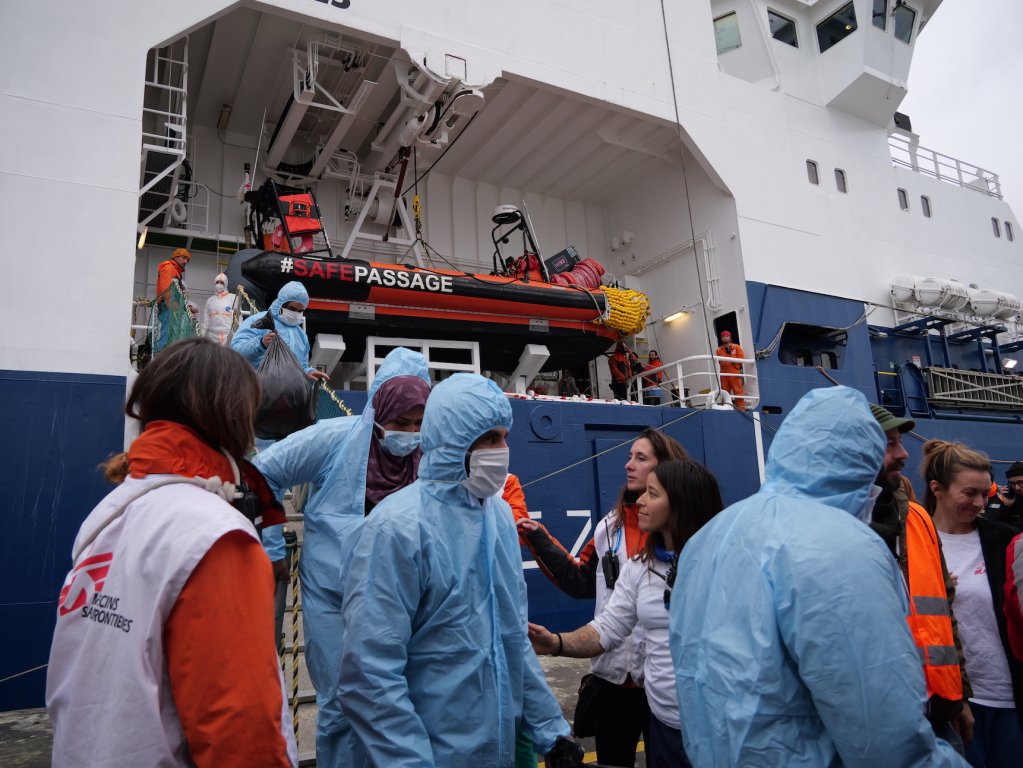
Claire Healy from the UN Office on Drugs and Crime (UNODC) and coordinator of its Observatory on Smuggling of Migrants told InfoMigrants that she has also not heard of such cases concerning corruption and abuse of power among United Nations workers in Libya.
"I haven't…In different UN organizations, there are checks and balances against those kind of things. It doesn't mean that they always work. Of course, it's possible that that's happening. That should be looked into. I can only guess," said Healy.
When asked whether they would have undertaken the journey to Europe through Libya if they had known the realities of the Mediterranean route, Salman, Mohammed and Zain quickly responded, "no, no, no."
"We would not have left Pakistan," said Mohammed. "We didn't know it would be like this in Libya. The smuggler is the mafia, the police is the mafia, the military is the mafia. But then we came and now we know how it is."
Click here for Part 4
*This series is based on an investigation conducted between February and May 2024 across Germany, Italy, and the Central Mediterranean. The investigation included a period on board the Médecins Sans Frontières (MSF) search and rescue ship, the Geo Barents, from January 30 to February 10. InfoMigrants was unable to independently verify the personal testimonies provided by migrant individuals.
